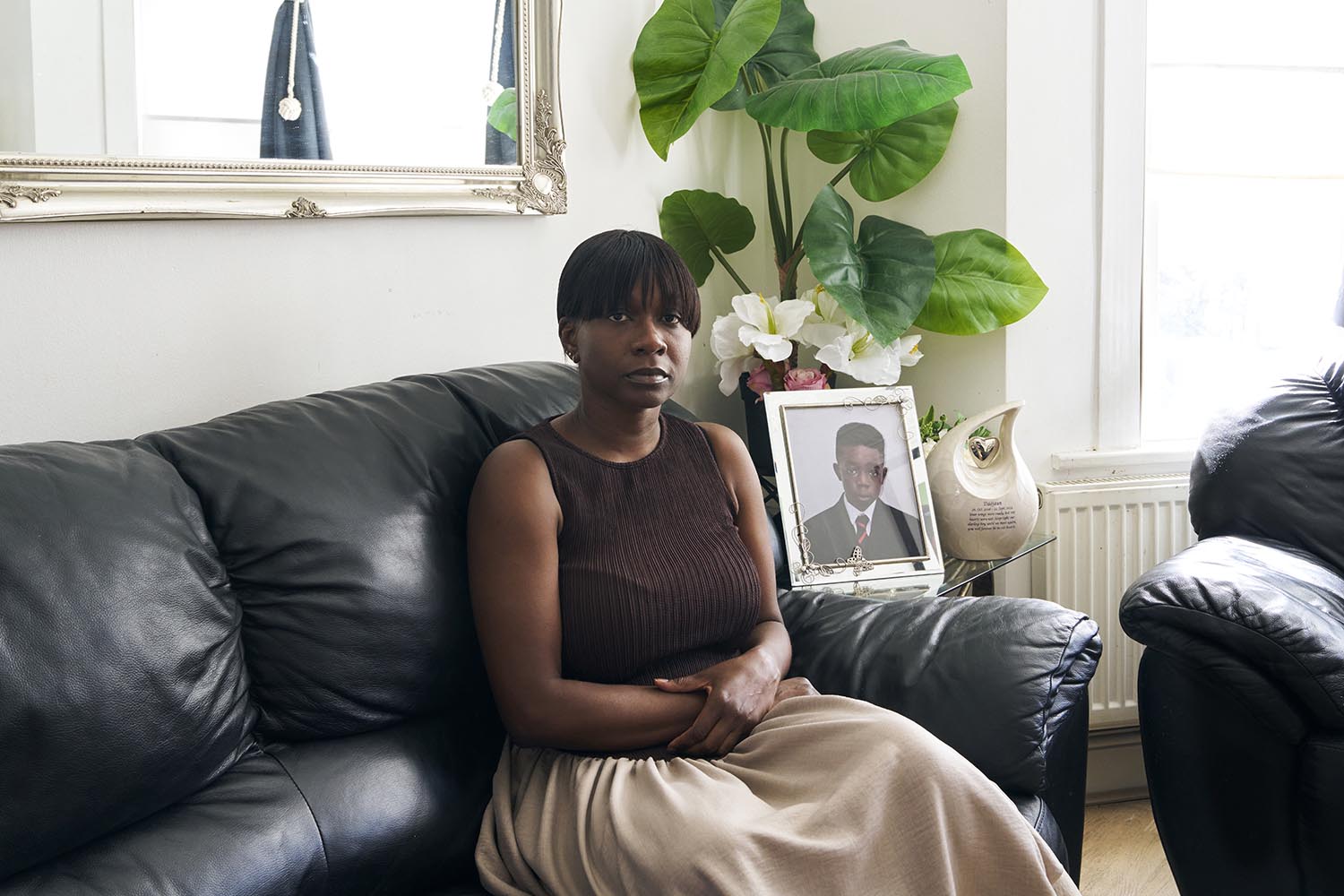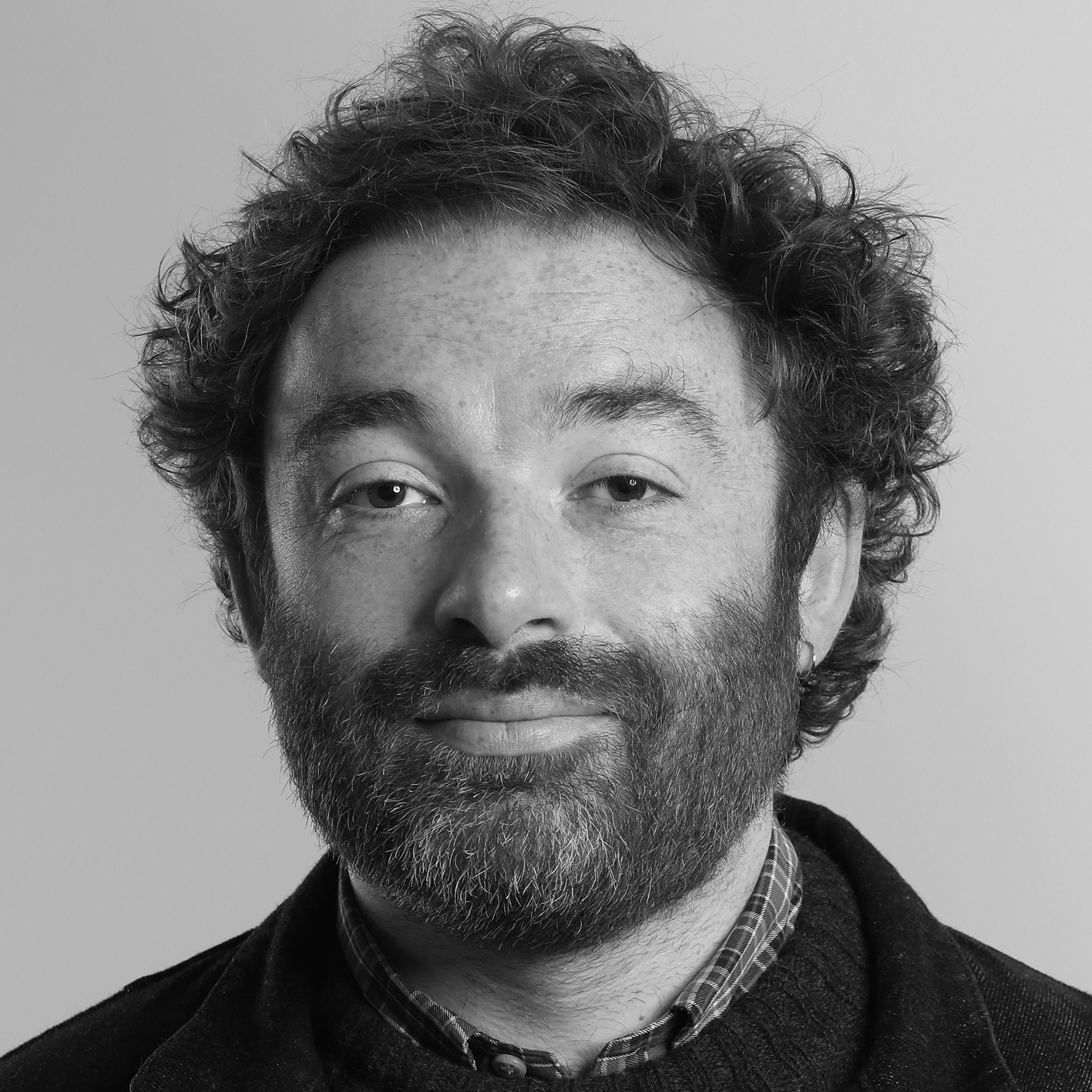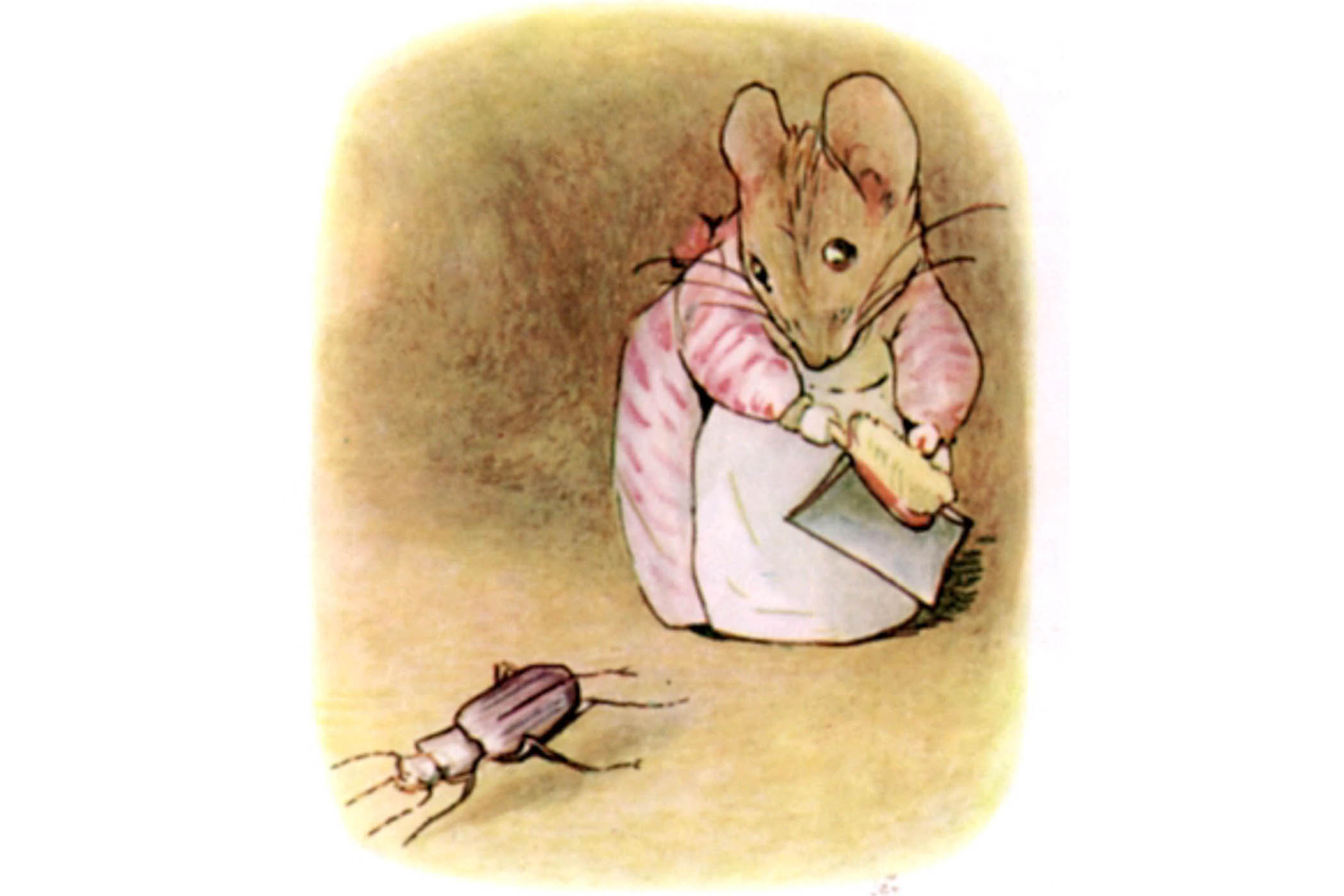You can listen to Francisco Garcia’s investigation on this week’s episode of The Slow Newscast, The mother and the gangs, here.
There is no lack of grieving mothers in Woolwich. Jodian Taylor is among them.
On the afternoon of 22 September last year her 15-year-old son was murdered in south-east London. Daejaun Campbell was walking on Eglinton Road when he was spotted by three teenagers.
It is still not clear precisely why Daejaun was attacked, though police believe he was “g-checked” – slang for being confronted as a suspected rival gang member – before being chased by two of the teenagers, while a third stood close by.
Eyewitnesses saw Daejaun try to flee before his assailants caught up with him. He was struck with a machete after a brief struggle. According to eyewitnesses, he shouted: “I’m 15, don’t let me die.”
Daejaun had been carrying his own knife, which he had thrown at his attackers. He was also found in possession of drugs and cash. At the end of last month, two of the teenagers, both of whom had several prior convictions for carrying knives, were convicted of manslaughter and murder respectively, while the third was acquitted of his murder.
Taylor had always been a highly active presence in her son’s life, and in his two younger brothers’. Daejaun’s issues had started in secondary school, Woolwich Polytechnic for Boys. It was painful, she says, to watch her well-mannered, open-hearted son become sullen and withdrawn, and increasingly lost to her.
“When something like this happens, the focus is always on the victim. As if they deserve it somehow. I don’t understand how that thinking comes about,” she says. Many of the specifics still remain unclear, but Daejaun was likely to have been groomed into criminal activity by older local gang members, who used him to carry and supply drugs.
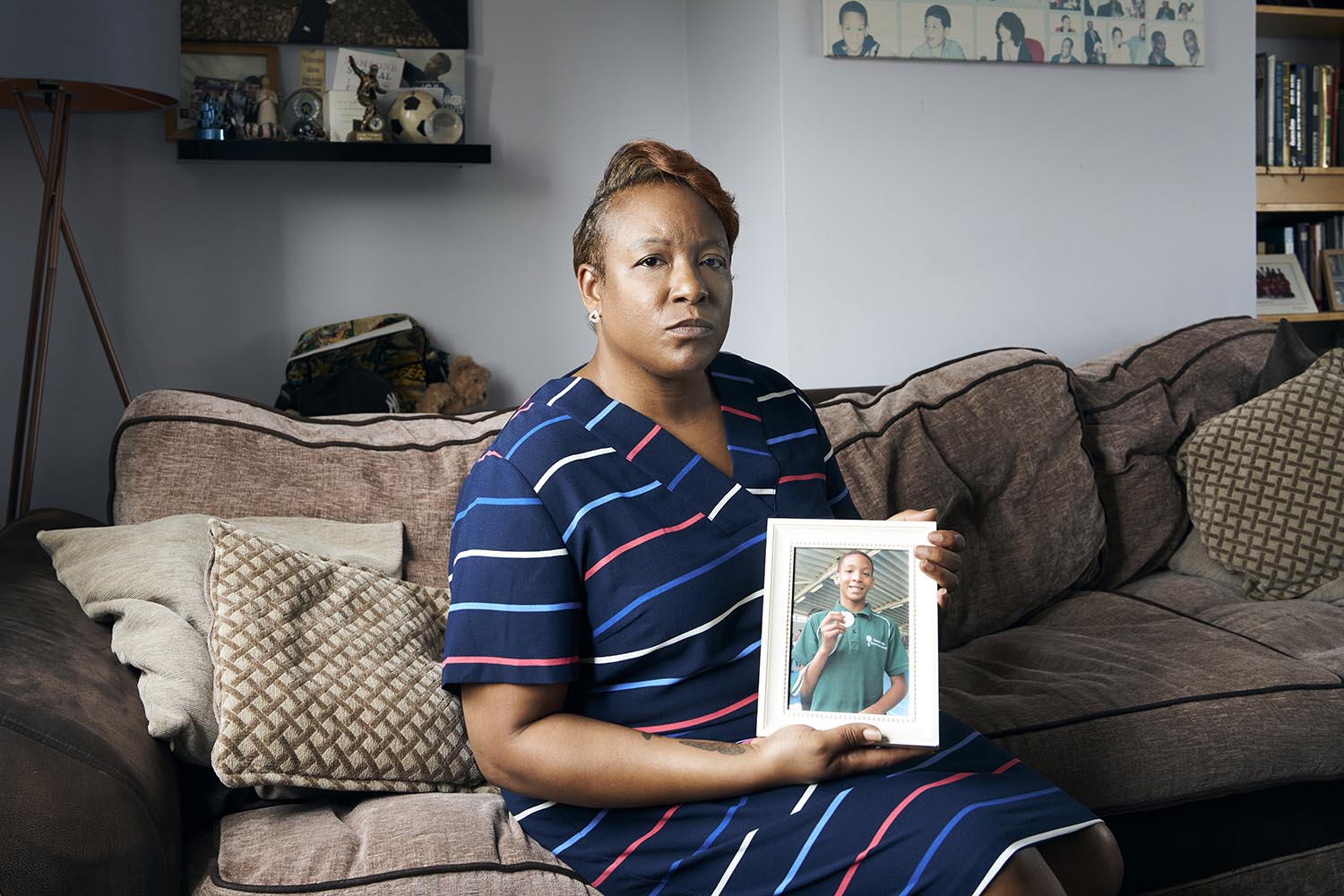
Keisha McLeod at home in London with a photo of her son, CJ Davis
Taylor says she had been a present, dedicated parent. Her son had never been neglected or left to find a sense of belonging in the embrace of the streets. And yet they had still drawn in Daejaun, just as they had so many other young people before him. What does it mean when even a mother’s care cannot overcome that implacable force?
Serious youth violence is on the rise across the UK. According to freshly published research by the Youth Endowment Fund, teen homicides involving knives have more than doubled in a decade. Ten years ago, 22 teenagers lost their lives in that way; last year, 53.
There is no consensus on how or why this brutality has been allowed to metastasise. Some have blamed the corrosive influence of drill music and social media. Others, the swingeing cuts to youth services over the past 15 years. There is another familiar refrain: where are the families? The implication is clear; that unfit or absent parents are to blame for their children’s decline into violence and chaos.
Such parents do undoubtedly exist, but they are not who I have encountered over the past few months. These mothers had been strong advocates for their sons, who had noticed the warning signs and tried everything to keep them from drifting into danger. And whose best efforts were often met with official inertia or incompetence.
Like much of the capital, Woolwich appears to be in the teeth of an acute identity crisis. On arrival at its Elizabeth line station, the visitor is greeted by a Gail’s bakery and new-build flats with unbroken views of the Thames. In 2023 the Sunday Times declared the area one of the best places to live in the city, particularly for “young professionals seeking a foothold on the property ladder”.
Such visions of middle-class aspiration mostly vanish within 100 metres of the tube station, replaced by a tired-looking high street, dotted with bookies and fast-food spots. Over the past half decade, Woolwich has been home to an increasingly vicious turf war between rival gangs, Wildbatch – who operate on the Barnfield estate – and the WoolyO gang, based just over a mile south in Woolwich Dockyard.
If some of this cycle of tit-for-tat violence stems from a battle for control of the local drug trade, it doesn’t fully explain its scale or viciousness.
‘When something like this happens, the focus is always on the victim. As if they deserve it somehow. I don’t understand how that thinking comes about’
‘When something like this happens, the focus is always on the victim. As if they deserve it somehow. I don’t understand how that thinking comes about’
Jodian Taylor
Marie Bokassa was not surprised her son Kelyan was murdered. The attack itself in January was over in moments, but Kelyan’s decline into a shadowy world of violence and chaos had been frighteningly gradual, right up until it wasn’t.
In the weeks after his killing, on board a double-decker bus travelling along Woolwich Church Street, a portrait began to emerge. His mother, who had arrived in the UK from the conflict-mired Central African Republic in the early 2000s, told the press that Kelyan had been a loyal, loving companion. He loved football and music, and dancing with her in their flat on the Barnfield estate. He had been sharp and funny; a bright boy of considerable potential, his teachers had said.
The whole truth is not so spotless. Kelyan had also been a troubled child, whose short life was riven with difficulties. Local gangs groomed him from the age of six and he had been sent home from primary school for taking in a knife.
After their flat was subject to an arson attack four years ago, Kelyan was taken into care, against his mother’s wishes. This move proved disastrous. He would frequently abscond from his accommodation in Deal, Kent, and return the 75 miles to London. Bokassa then took out an unsuccessful legal action to have him returned home.
Once, she and a friend found Kelyan in Stratford, almost 10 miles north of home, though he wouldn’t explain what he was doing or who he had gone to meet. For over a year, he dropped out of sight entirely. When he finally turned up on his mother’s doorstep last year, he was exhausted and undernourished. To Bokassa, it was as if her son had transfigured into a ghost.
Despite his mother’s repeated promptings, Kelyan never wanted to talk about his new friends and associates when he finally returned home to live with her. He would continue to come and go at odd hours without explanation. Bokassa has said she felt increasingly powerless, that she didn’t know what to do or how to curb her son’s behaviour. That she could sense the danger Kelyan was slipping into, and that she warned authorities of her concerns, to little avail.
Convictions began to accumulate. One for carrying a Stanley knife and another for cannabis possession, as well as the theft of a paltry amount of food from a local Greggs. He recorded drill music under the name Grippa, with lyrics full of violence and bravado.
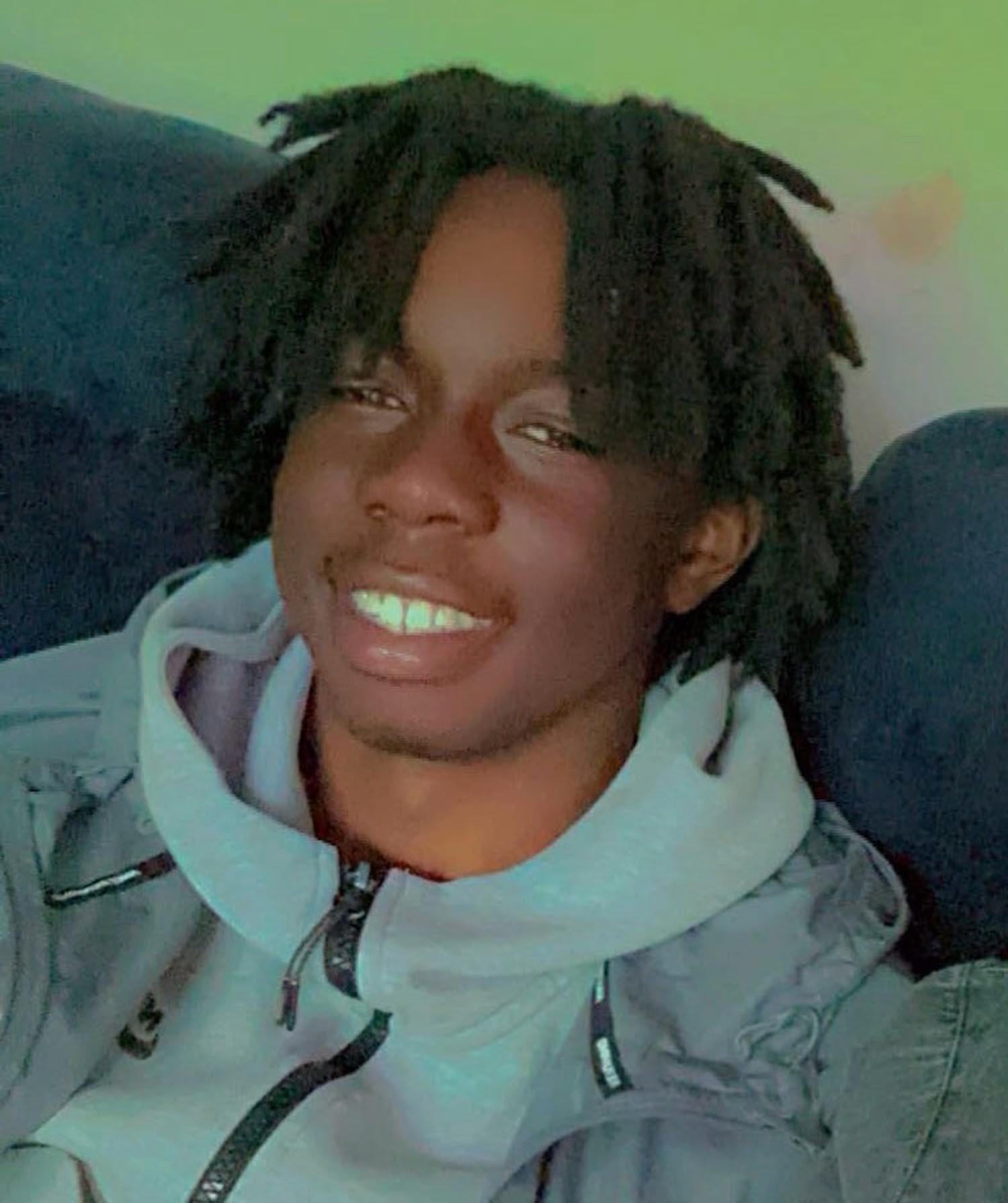
Daejaun Campbell
Kelyan Bokassa and Daejaun Campbell had been close. In the weeks after Daejaun’s murder, Kelyan had posted a musical tribute to his friend online. The video opens with a photo of Daejaun, captioned “#LongliveBoogz- I still can’t believe it’s you man, rest in peace”. The lyrics to the accompanying track, however, soon take a violent turn. “In school I’ll take man’s phone… or I’ll shave man down for ps” [stab someone for their money].”
Kelyan had been due in court the Friday after his murder, charged with possession of a machete. Still, there had been tentative signs of change in the weeks before his killing. He returned to mainstream education after a spell in a youth referral unit and was attending regular visits with his social worker.
In a potent gesture, he had written “I love you mum” on the wall of the balcony of their flat. But this does not capture the full reality. An hour before his murder, he had posted a message to his Instagram stories, asking his followers for mindis, the Somali word for knife. All teenage lives are full of contradictions, but few as stark as this.
On a bright afternoon in late July, Kelyan’s killers were sentenced after both had pleaded guilty in May. The public gallery in Court 6 was packed with teenage spectators, though it wasn’t clear who they had come to support. Marie Bokassa sat in silence, flanked by wellwishers. In her victim impact statement, she said she stood in front of us “not just as a mother but as a broken soul whose life changed forever the day my child's life was taken from me by another child”.
She left the room when CCTV footage of the attack was played. There were gasps and sobs from the public gallery as the footage unfolded. His killers smiled as they took out their machetes. Both had previous convictions for violence and carrying knives.
The prosecution noted that Kelyan did not have time to reach for his own blade, tucked into his trousers. Witnesses reported him shouting for his mum before his legs gave way. He was pronounced dead at the scene at 3.23pm.
Both Kelyan and Daejaun were at risk simply because of where they lived. Both were groomed by local criminal gangs. None of this is new. The spectre of county lines – the expansion of the inner-city drugs trade into Britain’s suburbs and coastal towns, often using harder-to-detect teenage runners – has been a talking point for more than a decade. In 2020, the Children’s Commissioner for England noted the similarities with what happened to the young girls raped and trafficked by networks of older men in Rochdale or Rotherham.
Both groups had been groomed by predatory adults, who recruited and used them for their own ends. And all too often both groups have been denied the sympathy or attention they deserved. They have, somehow, been deemed complicit in their own exploitation.
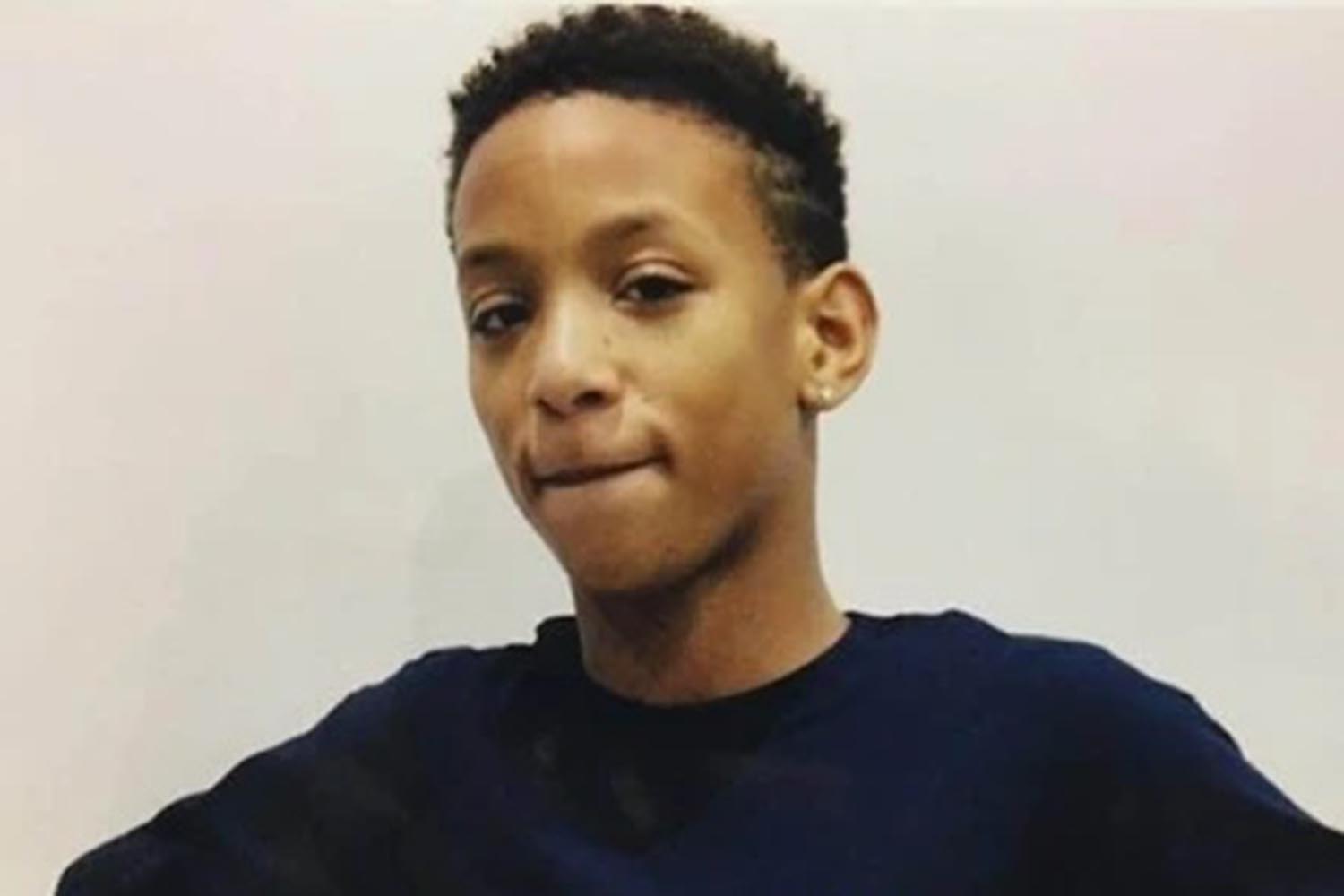
Corey Junior Davis
Keisha McLeod understands this better than most. In September 2017 her 14-year-old son, Corey Junior Davis – better known to his family as CJ – was shot dead in a park in east London. No one has ever been convicted of his murder.
An intelligent, caring boy, who struggled with severe ADHD, CJ had been expelled from school and sent to a pupil referral unit used by gangs as a recruiting ground. He was, as a later review into his killing found, so scared for his safety that he had bought himself a bulletproof vest and a knife for protection.
McLeod describes how bitterly she had fought to drag her son back. “I am [still in] disbelief at how my son passed. Which is why I have to speak about [how] much I poured into [him]. How much my family poured into him. How much teachers put into him. He was a sponge, like any other child. He just wanted to grow.”
In 2018 a serious case review concluded that a litany of professionals had treated CJ more like a criminal than a child at serious risk of exploitation.
Sometimes, even the most dedicated and conscientious parent is not equal to the forces set against them and their children.
Jodian Taylor worked punishingly long hours to make ends meet, as a bus driver among other jobs. When her son’s behaviour began to deteriorate, she was determined to tackle the problem head on, even taking the step of referring herself to social services, desperate to access their help and professional expertise.
This was not an easy decision, she explains. In her community, there has long been a stigma around appealing to the state for help, or “airing your dirty laundry in public”, as she put it to me.
After Daejaun’s murder, a social services assessment explained the scale of gang affiliation he had been exposed to at school, the first time she had been given such a warning. The notion that several of the area’s competing gangs had a foothold in the school was not something she had fully comprehended.
Taylor is not a naive woman. She knew that there were parents who turned a blind eye to their children’s wrongdoings. After going through Daejaun’s phone she had found incriminating photos taken with another boy. When she contacted his parents, they simply hung up and refused to answer her calls.
“When I go home to my son's ashes, I never get to hear him laugh. I no longer get FaceTime calls. I don’t get those things. All I’m left with is memories.”
Perhaps the most shocking allegation regards the inertia of the social worker assigned to her son’s case. According to Taylor, they did not show up to several meetings scheduled to work out an action plan to deal with the obvious signs of criminal exploitation and grooming Daejaun had fallen victim to.
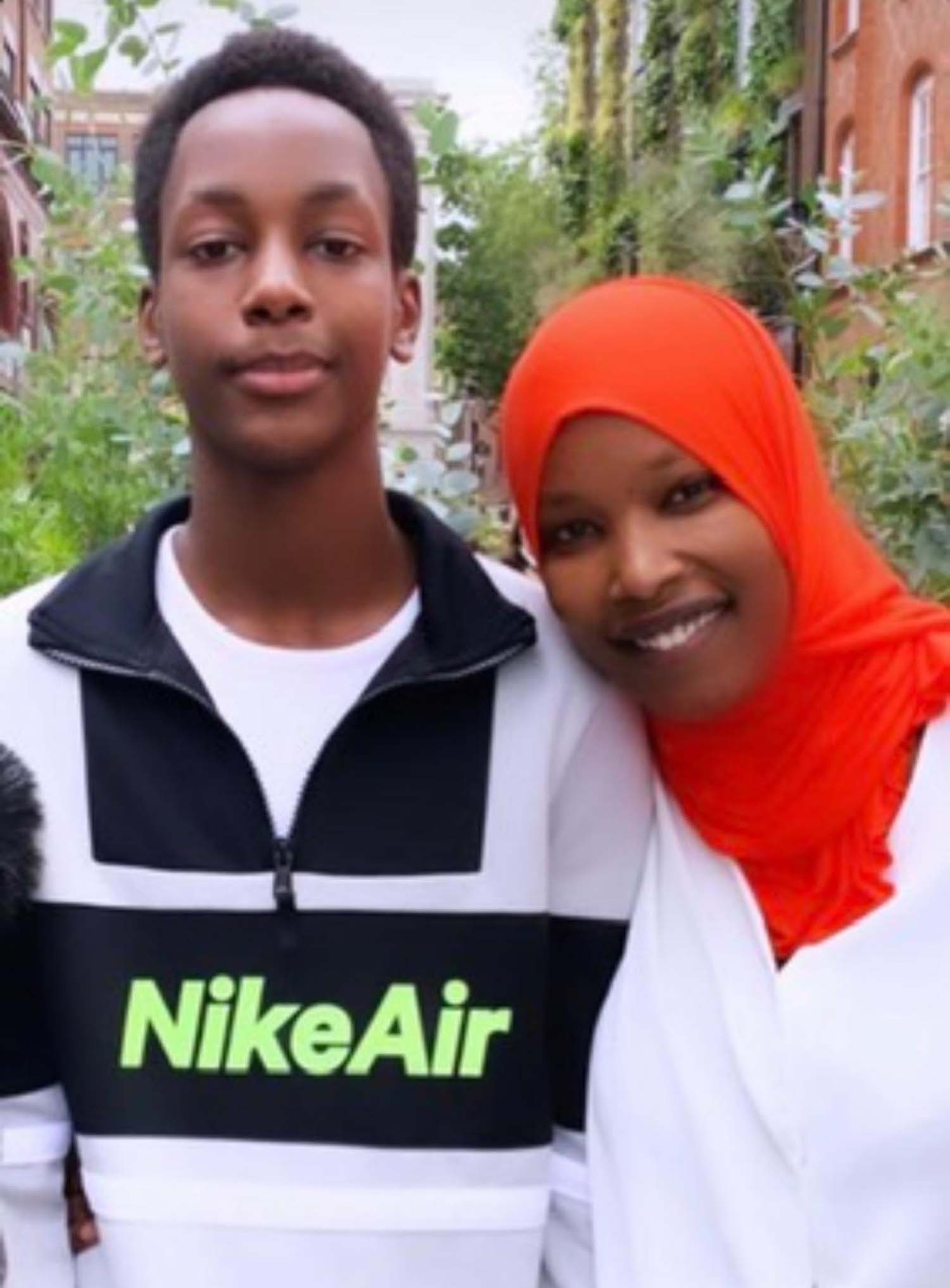
Hawa Haragakiza with her late son, Tamim
Hawa Haragakiza had always considered London a place of safety, having arrived in the UK as a teenager in the early 2000s, fleeing civil war in her native Burundi. On settling in Woolwich, life began to resolve into a hitherto unknown normality, with a home to build and the daily routine of work to attend to.
Haragakiza’s eldest son, Tamim, was born in 2006. A lively, sporty child, he had grown into an unusually good-natured teenager, popular with his peers and teachers alike.
On the afternoon of 5 July 2021, five teenage boys travelled to Woolwich from Dartford. They made their way to Vincent Road, a few yards from Woolwich Arsenal railway station. It was there that they came across 15-year-old Tamim and a group of his friends, on their way home from school.
CCTV footage showed Tamim being chased by the gang, before he was stabbed in the back. His story represented something different from those of Daejaun Campbell and Kelyan Bokassa. There has never been any suggestion that he was involved in Woolwich’s gang culture.
Haragakiza had always been in the centre of her children’s lives. She even insisted on picking up Tamim from school. His murder was the one day a work commitment meant she couldn’t make it. She has no time for the notion that her son’s death can be explained away as a case of “wrong place, wrong time”. She rejects the very concept. “He was walking home from school. He was not in the wrong place. The important question is, how do we make our young people safe?”
Haragakiza is worried for her family’s future. Her middle child was 13 when Tamin was killed. There are times when he is angry and withdrawn. Over the past couple of years, school in London had become an issue, as the formerly keen pupil began to slip into apathy. He lives with relatives in Rwanda, where his mother can be assured he is safe. It is an extraordinary admission that it represents a safer option than Woolwich. There is nowhere in the country, she said, that she would feel comfortable raising her sons.
‘To the young people who carry knives, I beg you to stop before you raise that blade. Don’t let a moment of anger steal your future’
‘To the young people who carry knives, I beg you to stop before you raise that blade. Don’t let a moment of anger steal your future’
Marie Bokassa
Her youngest son still remembers Tamim, but was too young to fully comprehend what happened to his brother in 2021. “Sometimes he remembers him and just cries. But at least he cries. [It is] better than trying to keep things inside.”
One thing is clear. Woolwich no longer feels like home. There is a bitter irony in the fact that the city that offered her safe haven in the mid-2000s is now the source of dread.
Jodian Taylor outlines a similar story. As a child, her family moved to London from Jamaica in search of a better life. “And now, I’ve started my family here and this has happened”, she said in disbelief. As for Haragakiza, she is still in Burundi, unable to bring herself to return to the UK. There are times, she said, that this absence irked her. As if being so far from Tamim’s grave was somehow a betrayal of his memory.
There was only silence across the court when Judge Mark Lucraft gave Kelyan Bokassa’s killers their life sentences. Both would serve a minimum of 15 years and 10 months before being considered for release. During the sentencing, it was possible, I thought, to see a slight smile on one of the boy’s faces: a final, pointless act of teenage defiance.
Outside the Old Bailey, I joined the crush of reporters waiting for Marie Bokassa to leave. After 20 minutes or so, she appeared. Reading a short statement, her voice was slightly muffled by a strong summer breeze. “To the young people who carry knives, I beg you to stop before you raise that blade,” she said. “Don’t let a moment of anger steal your future. Don’t let the streets raise you in a way your mother never would. There is no power in death, only loss.”
But there could be no promise that her son’s murder would lead to lasting change. How many times will this awful scene, of a mother railing against the senseless killing of her child, be repeated? For as long as the power of the streets – and the nexus of exploitation and inertia they produce – is stronger than a mother’s love, there will always be a next time.
Newsletters
Choose the newsletters you want to receive
View more
For information about how The Observer protects your data, read our Privacy Policy
Photographs by Suki Dhanda/The Observer
